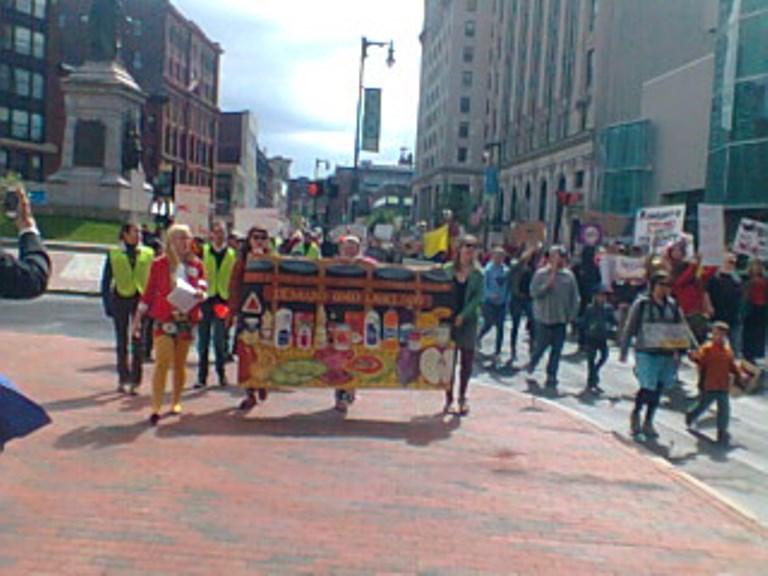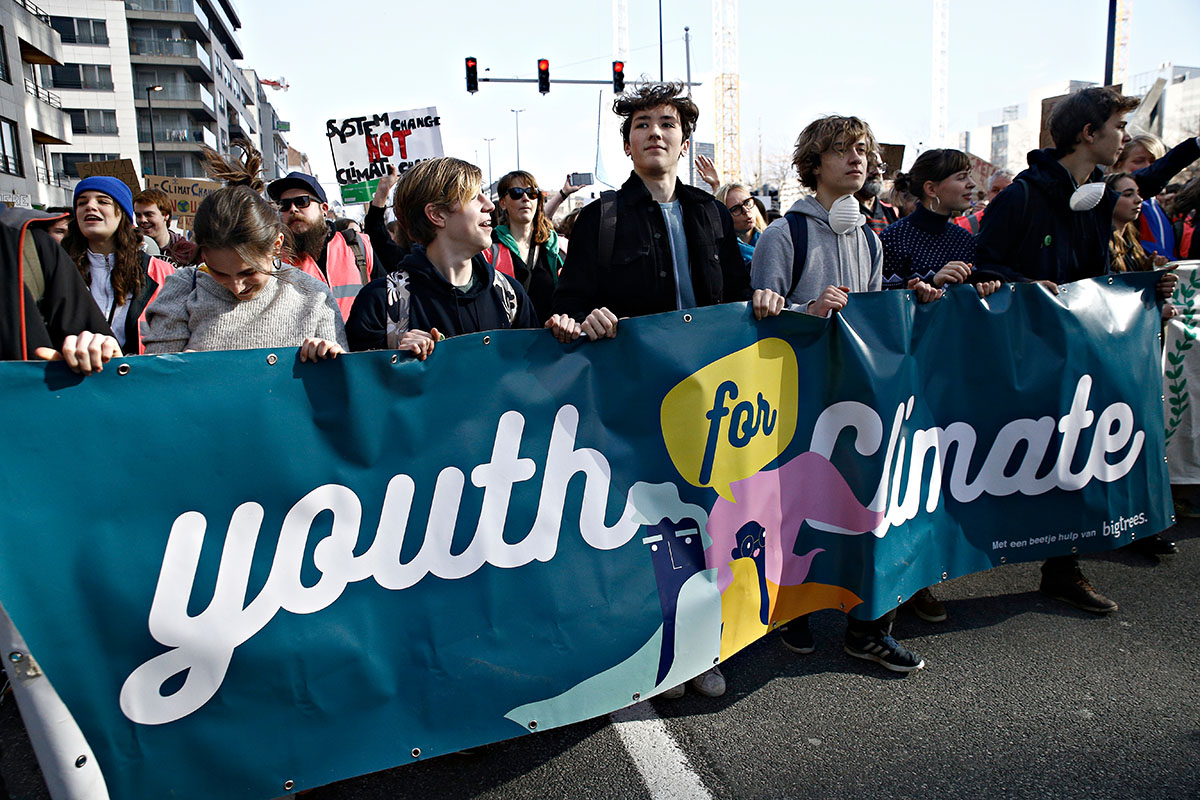"Portland joins global march against Monsanto"
June 9 Multi-national corporations have enormous influence over food production, writes David Masengesho, 26, a Commonwealth Correspondent from Kigali in Rwanda who is currently in the USA. At the same time, consumers are demanding accountability from those corporations.
Multi-national corporations have enormous influence over food production, writes David Masengesho, 26, a Commonwealth Correspondent from Kigali in Rwanda who is currently in the USA. At the same time, consumers are demanding accountability from those corporations.
It is on Saturday, May 24, about 2:30pm EST, I am in Portland Public Library. I find myself unable to concentrate on anything, for it is too noisy out there. I get out of the library; across from it is Monument Square, a ground that usually hosts a local farmers’ market every Thursday. This afternoon, it is crowded with lots of people carrying various signs. They have come together and they are ready to march against MONSANTO.
March Against Monsanto in Portland, Maine, is a local event of a global movement to call into question long-term health risks of genetically modified foods and to demand that GMO products be labeled so that consumers can make informed decisions. The movement was initiated last year after the US Congress and Obama signed the Farmer Assurance Provision, a law nicknamed the “Monsanto Protection Act,” allowing Monsanto to plant, grow, and distribute genetically engineered seed without USDA judicial review, although critics say there are known health risks.
Established in 66 countries across six continents, Monsanto is a biochemical company responsible for manufacturing products that many deem as hazardous, pointing to connections with a variety of health issues. They also produce genetically modified seeds, promoting genetically modified organism (GMO) crops as a solution to world hunger. The company’s net sales reached $11.8 billion in 2011. Its top products include Roundup and harness herbicides, DEKALB corn seeds, Asgrow soybean seeds, Deltapine cotton seeds, Seminis vegetable seeds, De Ruiter vegetable seeds, Smartstax insect-repellent corn and Bollgard insect-repellent cotton. In 2009, its products were grown on over 282 million acres worldwide, and on 40 per cent of the US crop acreage.
Using GMO seed at first causes a larger crop yield; however, the outlying plants become immune to the pesticide resulting in resistant weeds. Therefore, more pesticide is necessary to control the “new super weed”, and the seed patent compels farmers to pay annual fees for using the seeds. Some researchers argue that this habit threatens to deplete organic farming by spread of the seed through cross-contamination, cross-pollination, and the destruction of bee and butterfly populations.
The demonstrators had numerous key speakers who expressed concern about the effects of Monsanto and GMOs. “We need to have good health, our children, grandchildren and children beyond,” they said. “Leaders should be people servants’ – not big corporation servants.” “Everyone has the right to know GMO.” “The problem is not food shortage, it is rather food access.” – These are some fractions of the speeches delivered before the march starts. The march seeks to protect food supply, to support local farms, to protect the environment, to promote organic solutions, to expose cronyism and to bring accountability in corporate corruption.
GMOs are currently labeled in 64 countries, but not in the USA. Maine and Connecticut last year passed bills that would require labeling informing consumers about GMO components in foods if at least five neighboring states passed similar legislation. Recently, Vermont passed the labeling bill that could go into effect in July 2016, and 29 other states have recently proposed the GMO labeling bills according to the National Conference of State Legislatures. The movement is not going to stop by the march; the movement is going to continue by calling the state and the congress legislatures so as to repeal the Monsanto Protection Act.
Contrary to the large public support for labeling, Monsanto has never stopped to address allegations of what some point to as corrupt ties with politics and electoral system. In 1991, Michael Taylor, a previous attorney for Monsanto, was appointed as deputy commissioner of the US Food and Drug Administration. After making significant decisions in approving genetically engineered crops and foods, Taylor went back to work for Monsanto as the Vice President for public policy. Monsanto contributions to the US political campaign amounted to $829,662 from 2000 to 2012.
Critics of GMOs cite scientifically proven health risks consisting of organ damage, sterility, infant mortality, birth defects, auto-immune conditions, allergies and increased cancer risk among others.
Photo: David Maengesho
…………………………………………………………………………………………………………………
About me:
I am originally from Rwanda, currently residing in the USA where I am an ESL instructor working with immigrants and youth at risk. I volunteer with different civil society organizations, mostly working on migration, equality and human rights. Prior to moving to the US I worked as a statistician. I have a degree in Applied Statistics and plan to work in research. My hobbies are travelling, networking, and exploring cultures.
…………………………………………………………………………………………………………………
Opinions expressed in this article are those of the author and do not necessarily represent the views of the Commonwealth Youth Programme. Articles are published in a spirit of dialogue, respect and understanding. If you disagree, why not submit a response?
To learn more about becoming a Commonwealth Correspondent please visit: http://www.yourcommonwealth.org/submit-articles/commonwealthcorrespondents/
…………………………………………………………………………………………………………………




